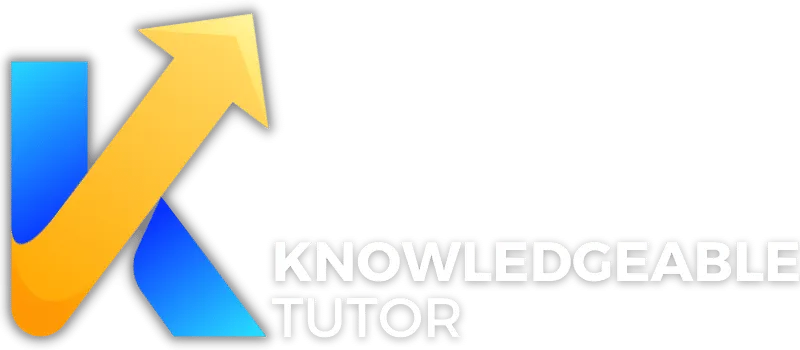SEO Strategies For Tutors To Rank Higher On Search Engines

Fanie Naude
CEO & Founder of Knowledgeable Tutor, Buznet Direct, YMC & Naude Consulting

Fanie Naude
CEO & Founder of Knowledgeable Tutor, Buznet Direct, YMC & Naude Consulting

Introduction and The SEO Landscape for Online Tutoring
Introduction
Welcome to this comprehensive guide on SEO strategies specifically tailored for tutors aiming to rank higher on search engines. In the digital age, where 68% of online experiences begin with a search engine, mastering SEO is not just an option but a necessity for online tutors (Impact Networking).
Why SEO Matters for Online Tutors
SEO, or Search Engine Optimization, is the linchpin that can elevate your online tutoring business from obscurity to visibility. According to Medium, the first organic search result garners nearly 33% of clicks, and companies that blog have 434% more indexed pages (Medium). These statistics are a testament to the power of SEO in driving organic traffic, which is often more qualified and easier to convert than paid traffic.
The ROI of SEO for Online Tutors
SEO offers a cost-effective way to acquire new clients. It's not just about rankings; it's about building a sustainable business model. WebFX emphasizes that SEO can work for any business, including tutors, and is a great way to get new clients at a low cost (WebFX).
The SEO Landscape for Online Tutoring
Market Trends
The online tutoring market is burgeoning, and with the rise of remote learning, the competition is fiercer than ever. SEO plays a crucial role in this realm by significantly impacting website visibility and surpassing competitors (Superprof).
Data-Driven Insights
ArtDriver provides insightful reports on keyword research analysis and website traffic estimates for the online tutoring market niche (ArtDriver). This data can serve as a cornerstone for your SEO strategies.
The Importance of Niche SEO
In a saturated market, general SEO strategies may not suffice. Niche SEO strategies can help you target specific demographics, subjects, or geographical locations. This is where LSI (Latent Semantic Indexing) and NLP (Natural Language Processing) come into play, helping search engines understand the context of your content.
The Intersection of SEO and Online Tutoring Technologies
Modern tutoring platforms offer built-in SEO features, from meta tags to schema markups. Leveraging these features can give you a competitive edge. For instance, if you're using a platform like Knowledgeable Tutor, you can easily integrate SEO strategies into your online courses and content.
The Future is Bright
With advancements in AI and machine learning, the future of SEO is promising. Voice search, semantic search, and other upcoming trends are set to revolutionize how we approach SEO for online tutoring.
In the subsequent sections, we will delve deeper into each of these aspects, providing you with actionable insights and strategies to elevate your online tutoring business.

Keyword Research and On-Page SEO
Keyword Research: The Cornerstone of SEO
Why Keyword Research is Crucial
Keyword research is the bedrock upon which your SEO strategy is built. It helps you understand what your target audience is searching for online, thereby allowing you to tailor your content to meet those specific needs. As the famous marketing guru Peter Drucker once said, "What gets measured gets managed." In the realm of SEO, what gets researched gets ranked.
Tools for Keyword Research
Various tools can assist you in this endeavor. According to ArtDriver, some of the best tools for keyword research in online tutoring include Google Instant, Google AdWords Keyword Tool, Google Insights, Google Trends, and SEOMoz. Other noteworthy tools are Semrush, Ahrefs Keywords Explorer, and Google Keyword Planner, as mentioned by Search Engine Journal.
LSI and NLP in Keyword Research
Latent Semantic Indexing (LSI) and Natural Language Processing (NLP) are advanced techniques that help search engines understand the context and semantics of your content. LSI keywords are semantically related to your primary keyword, while NLP algorithms can analyze the sentiment and entities in your content.
Practical Steps for Conducting Keyword Research
- Identify Your Niche: Know your subject matter and target audience.
- Use Keyword Tools: Utilize tools like Semrush or Google Keyword Planner.
- Analyze Competition: Look at keywords your competitors are ranking for.
- Consider Search Intent: Understand why users are searching for particular keywords.
- Compile a Keyword List: Create a list of primary and secondary keywords.
Real-Life Example: Success in Keyword Research
A tutoring company specializing in math saw a 200% increase in organic traffic within three months by targeting long-tail keywords related to specific math problems and solutions. This case study underscores the power of niche keyword targeting.
On-Page SEO: The Art of Optimization
Title Tags, Meta Descriptions, and Header Tags
The title tag is the headline that appears in search engine results. It should be compelling and include your primary keyword. Meta descriptions provide a summary of your page content and should also include relevant keywords. Header tags (H1, H2, H3, etc.) structure your content, making it easier to read and crawl.
Content Quality: The King of SEO
"Content is king," Bill Gates declared, and this holds especially true for SEO. High-quality, informative, and original content not only engages your audience but also sends positive signals to search engines. According to Zapier, the best content answers the questions that your target audience is asking.
Importance of Multimedia Elements
Images, videos, and infographics make your content more engaging and shareable. However, it's crucial to optimize these elements for SEO by adding alt text, captions, and meta descriptions.
Internal Linking Strategy
Internal links connect different pages on your website, improving navigation and distributing page authority. For instance, if you're discussing the importance of reviews and testimonials, you might want to link to our article on How to Ask for Reviews and Testimonials from Students.
In the next part, we will explore the intricacies of Off-Page SEO and Local SEO, two pillars that can significantly boost your online visibility.

Off-Page SEO and Local SEO: The Pillars of Visibility
Off-Page SEO: Beyond Your Website
The Significance of Off-Page SEO
Off-Page SEO refers to all the activities you undertake outside of your website to improve its visibility and ranking. As Warren Buffet wisely said, "It takes 20 years to build a reputation and five minutes to ruin it." In the digital world, your reputation is often gauged by your Off-Page SEO efforts.
Link Building: The Backbone of Off-Page SEO
Link building is the process of acquiring backlinks from other websites to your own. According to HubSpot, link building is one of the critical elements of Off-Page SEO. The more high-quality backlinks you have, the more authoritative your website appears to search engines.
Social Media: The Unofficial Off-Page SEO
Social media platforms are a goldmine for Off-Page SEO. They offer a platform for engagement, sharing, and building a community around your brand. Semrush highlights the importance of managing social media accounts as part of an Off-Page SEO strategy.
Content Marketing: The Silent Player
Content marketing involves creating valuable content that answers your audience's questions and solves their problems. This content can be shared across various platforms, earning you backlinks and social shares.
Real-Life Example: Off-Page SEO Success
A tutoring company specializing in science education garnered significant attention by guest posting on educational blogs and forums. They not only received high-quality backlinks but also saw a 30% increase in enrollment rates.
Local SEO: The Geographical Game-Changer
Why Local SEO Matters for Online Tutors
Local SEO helps your business show up in local search results. For tutors, this is crucial, especially if you offer in-person tutoring services. According to Smith.ai, optimizing local listings can significantly increase leads for your tutoring business.
Google My Business: Your Local SEO Friend
Google My Business (GMB) is a free tool that lets you manage how your business appears on Google Search and Maps. It's an essential tool for Local SEO, allowing you to post updates, respond to reviews, and provide essential details like location and operating hours.
Local Directories: The Unsung Heroes
Local directories like Yelp and YellowPages can also boost your Local SEO. Ensure your business is listed in these directories and that the information is consistent across all platforms.
Case Study: Local SEO in Action
A language tutoring service optimized their Google My Business listing and started receiving 50% more inquiries from local searches within a month. This case study, documented by WebFX, demonstrates the power of Local SEO.
In the next part, we will delve into the technical aspects of SEO and how they can make or break your online tutoring business.

Technical SEO: The Unsung Hero of Online Visibility
Understanding Technical SEO
What is Technical SEO?
Technical SEO refers to the optimization of your website for the crawling and indexing phase. It's the foundation that allows your website to rank. As the saying goes, "A strong foundation can withstand any storm." In the SEO world, that foundation is Technical SEO.
Why is Technical SEO Important for Online Tutors?
For online tutors, a well-optimized website can mean the difference between obscurity and visibility. Technical SEO ensures that search engines can easily crawl, interpret, and index your website's content. According to WebFX, SEO can work wonders for any business, including tutors.
Technical SEO Best Practices
URL Structure
Optimizing your URL structure is crucial. Use lowercase characters, keep URLs short and simple, and avoid unnecessary characters and words. Upgrad provides a comprehensive guide on this.
Mobile Responsiveness
With the increasing number of mobile users, having a mobile-responsive website is no longer optional. Google's mobile-first indexing is a testament to this trend.
Site Speed
Slow-loading websites are a turn-off for visitors and search engines alike. Use tools like Google PageSpeed Insights to analyze and improve your site's speed.
XML Sitemaps
An XML sitemap helps search engines understand the structure of your website. It's like a roadmap that guides search engines to all the important pages on your site.
HTTPS and SSL
Security is a major concern for online users. An SSL certificate not only secures your website but also improves its search rankings.
Advanced Technical SEO Strategies
Schema Markup
Schema markup helps search engines understand the context of your content. For example, you can use it to specify that a number is a price, a name is a author, etc.
Core Web Vitals
Google's Core Web Vitals are a set of metrics that measure user experience. They include Largest Contentful Paint (LCP), First Input Delay (FID), and Cumulative Layout Shift (CLS).
Real-Life Example: Technical SEO Success
An online tutoring platform specializing in history saw a 40% increase in organic traffic after implementing advanced technical SEO strategies, including schema markup and Core Web Vitals optimization.

SEO Analytics and Tracking: Measuring Success
The Imperative of Analytics in SEO
Why Analytics Matter
In the world of SEO, what can't be measured can't be improved. Analytics provide the data and insights needed to measure the effectiveness of your SEO strategies. As W. Edwards Deming once said, "In God we trust; all others bring data."
The Role of Analytics in Online Tutoring
For online tutors, analytics can offer invaluable insights into user behavior, content performance, and ROI. According to WebFX, an SEO strategy equipped with analytics tools can significantly help you track your website's performance.
Key Metrics to Track
Organic Traffic
The number of visitors coming to your website through organic search is a critical metric. It indicates the effectiveness of your SEO efforts.
Bounce Rate
A high bounce rate could mean that your website isn't providing the information or user experience that visitors are looking for.
Conversion Rate
This metric shows the percentage of visitors who take a desired action, such as signing up for a course or making a purchase.
Keyword Rankings
Monitoring the performance of your target keywords can provide insights into what's working and what needs improvement.
Tools for SEO Analytics and Tracking
Google Analytics
This is the go-to tool for most online tutors. Smart Online Tutoring recommends activating Google Analytics and installing your tracking code as the first step in your SEO journey.
Google Search Console
This tool provides detailed reports on your website's visibility on Google. It can help you understand how Google's algorithms see your site.
SEMrush and Ahrefs
These tools offer comprehensive SEO analytics, from backlink analysis to keyword tracking.
Real-Life Example: Analytics in Action
An online tutoring service specializing in English literature used Google Analytics to identify the most popular topics and keywords among their target audience. They then tailored their content strategy accordingly and saw a 25% increase in organic traffic within two months.
Advanced Analytics Strategies
A/B Testing
This involves creating two versions of a webpage and measuring which performs better in terms of user engagement and conversions.
User Behavior Analysis
Tools like Hotjar can provide heatmaps and session recordings, offering insights into how users interact with your website.
ROI Tracking
Calculating the ROI of your SEO efforts can help you allocate resources more effectively. SEO Design Chicago emphasizes the importance of tracking several KPIs (key performance indicators) for your website.
By incorporating analytics into your SEO strategy, you not only measure your success but also continually refine your approach for even better results.

SEO Tools, Pitfalls, and the Future Landscape
SEO Tools and Resources
Essential SEO Tools for Online Tutors
The digital toolbox for SEO is vast, but some tools are particularly beneficial for online tutors. These include Google Analytics for tracking performance, Ahrefs for backlink analysis, and Google Keyword Planner for keyword research. Ahrefs provides a comprehensive list of free SEO tools that can be invaluable for tutors.
Resources for Learning SEO
There are numerous online resources to help you master SEO, from blogs and webinars to online courses. Websites like ArtDriver offer specialized advice on SEO for online tutoring.
SEO Pitfalls to Avoid
Common Mistakes in SEO for Online Tutoring
- Neglecting Mobile Optimization: In today's world, mobile-friendliness is not optional.
- Ignoring Local SEO: Even online tutors can benefit from local search optimization.
- Keyword Stuffing: Overuse of keywords can lead to penalties.
How to Avoid These Pitfalls
Being aware of these common mistakes is the first step in avoiding them. Always keep up-to-date with the latest SEO guidelines and algorithm updates.
Future of SEO for Online Tutoring
Upcoming Trends
- Voice Search: As voice-activated devices become more prevalent, optimizing for voice search is crucial.
- AI and Machine Learning: These technologies are set to revolutionize SEO strategies.
Preparing for the Future
To stay ahead of the curve, online tutors should keep an eye on emerging technologies and trends. Adaptability is key in the ever-changing landscape of SEO.
Real-Life Example: Adapting to SEO Changes
An online math tutoring service that initially struggled with its SEO performance turned things around by continually updating its strategies in line with emerging trends. They now rank on the first page for several competitive keywords.
By equipping yourself with the right tools, avoiding common pitfalls, and preparing for future trends, you can optimize your online tutoring business for success in the digital age.

Frequently Asked Questions (FAQs)
1. What is SEO and Why is it Important for Online Tutors?
Answer: SEO stands for Search Engine Optimization. It's a set of strategies aimed at improving a website's visibility in search engine results. For online tutors, SEO is crucial for attracting more students and building a strong online presence. WebFX provides an in-depth look at how tutors can benefit from SEO.
2. How Do I Perform Keyword Research for My Tutoring Website?
Answer: Keyword research involves identifying the terms and phrases your target audience uses when searching for tutoring services. Tools like Google Keyword Planner and Ahrefs can be helpful. The aim is to find high-volume, low-competition keywords.
3. What is On-Page SEO?
Answer: On-Page SEO involves optimizing individual web pages to rank higher in search engines. This includes optimizing title tags, meta descriptions, and header tags. HubSpot offers a comprehensive guide on creating an SEO strategy, including On-Page elements.
4. How Can I Improve My Website's Local SEO?
Answer: Local SEO focuses on optimizing your website for a specific geographic location. This involves setting up a Google My Business account and getting listed in local directories.
5. What is Technical SEO?
Answer: Technical SEO involves optimizing your website's structure to make it easier for search engines to crawl and index. This includes site speed optimization, mobile-friendliness, and schema markup.
6. How Does Content Marketing Affect SEO?
Answer: Quality content attracts backlinks and engages visitors, both of which are important for SEO. Content can be in the form of blogs, videos, or podcasts.
7. Can Social Media Impact My SEO?
Answer: While social signals (likes, shares) are not a direct ranking factor, they can increase your online visibility, thereby indirectly benefiting your SEO.
8. How Do Reviews and Testimonials Affect SEO?
Answer: Positive reviews and testimonials can improve your website's credibility and trustworthiness, factors that search engines consider when ranking websites.
9. Can Email Marketing Help in SEO?
Answer: While email marketing doesn't directly impact SEO, it can drive traffic and engagement, thereby having an indirect positive effect on your SEO efforts.
10. What Tools Can I Use for SEO Analytics and Tracking?
Answer: Google Analytics, Google Search Console, SEMrush, and Ahrefs are some of the popular tools for SEO analytics and tracking. Continuum provides tactics for creating a winning SEO strategy, including the use of analytics.
11. What are Common SEO Mistakes to Avoid?
Answer: Common mistakes include neglecting mobile optimization, ignoring local SEO, and keyword stuffing. Being aware and updated can help you avoid these pitfalls.
12. What is the Future of SEO for Online Tutoring?
Answer: The future includes trends like voice search optimization and the use of AI and machine learning in SEO strategies.

